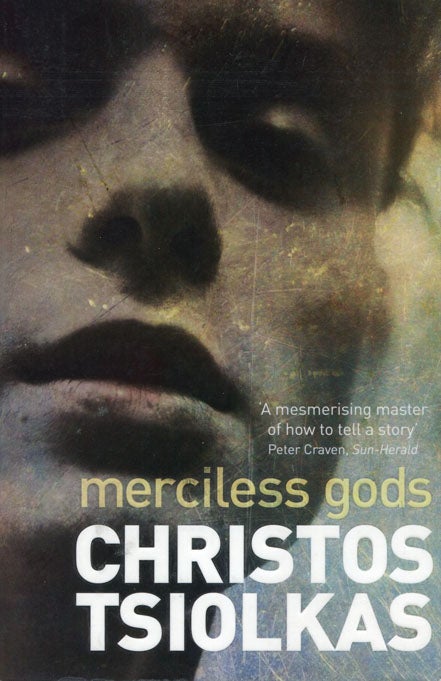Merciless Gods, by Christos Tsiolkas - book review: The beauty in the beast
Atlantic - £12.99

Your support helps us to tell the story
From reproductive rights to climate change to Big Tech, The Independent is on the ground when the story is developing. Whether it's investigating the financials of Elon Musk's pro-Trump PAC or producing our latest documentary, 'The A Word', which shines a light on the American women fighting for reproductive rights, we know how important it is to parse out the facts from the messaging.
At such a critical moment in US history, we need reporters on the ground. Your donation allows us to keep sending journalists to speak to both sides of the story.
The Independent is trusted by Americans across the entire political spectrum. And unlike many other quality news outlets, we choose not to lock Americans out of our reporting and analysis with paywalls. We believe quality journalism should be available to everyone, paid for by those who can afford it.
Your support makes all the difference.Anyone shocked by Christos Tsiolkas’s novel The Slap might be advised to approach this book with caution. For this reviewer, the deeply flawed, often misogynist characters in The Slap made it a compelling read, but those with a sensitive disposition may not stomach them, including as they do rapists, racists, sexists, those who use derogatory slang for the gay and disabled, child abusers and pornographers. Personally, I found the stories riveting in their uncompromising revelations about the uglier side of human nature.
In the eponymously titled opening story, a dinner party game sends shockwaves through a group of friends and shows how love can be based on one’s idealised view of another without truly knowing them. “Tourists” features a couple visiting an art gallery. A rift develops between them when one of them utters a racist insult. Derogatory language features again in “Sticks, Stones”, when a mother hears her son casually use a hurtful slur and realises she no longer knows her child.
Some of the stories explore complex relationships. In “The Disco at the End of Communism”, a man grapples with the conflicting emotions that he feels when his hippie brother dies. Envy, resentment and contempt battle with love and longing in the complicated grief experienced by those with ambiguous family relationships.
Tsiolkas is never judgemental about his characters. In “Petals”, a Greek man who murdered his wife and has been subjected to continued racist abuse in prison snaps when a gentle old man who tends the prison flowers is attacked by thuggish fellow prisoners. Not for Tsiolkas the easy way out of the wrongly convicted: the old man is a paedophile. Yet Tsiolkas is capable of immensely beautiful prose as well as revelling in the dark side of humanity. After the attack, the old man peels off flakes of skin which “float into his lap like dying petals”.
The last three stories are the most traumatic of all. In “Porn 1”, a middle-aged woman faces up to the fact that her deceased HIV-positive son was an actor in porn movies. “Porn 2” is narrated from the point of view of a heroin addict in love with another heroin addict. The second man is forced through debt to take part in a gay porn movie. The details are as graphic as any Irvine Welsh tale but without the humour. The atmosphere in this and in “Porn 3” is suffocatingly oppressive. An engrossing, powerful, disturbing collection.
Join our commenting forum
Join thought-provoking conversations, follow other Independent readers and see their replies
Comments